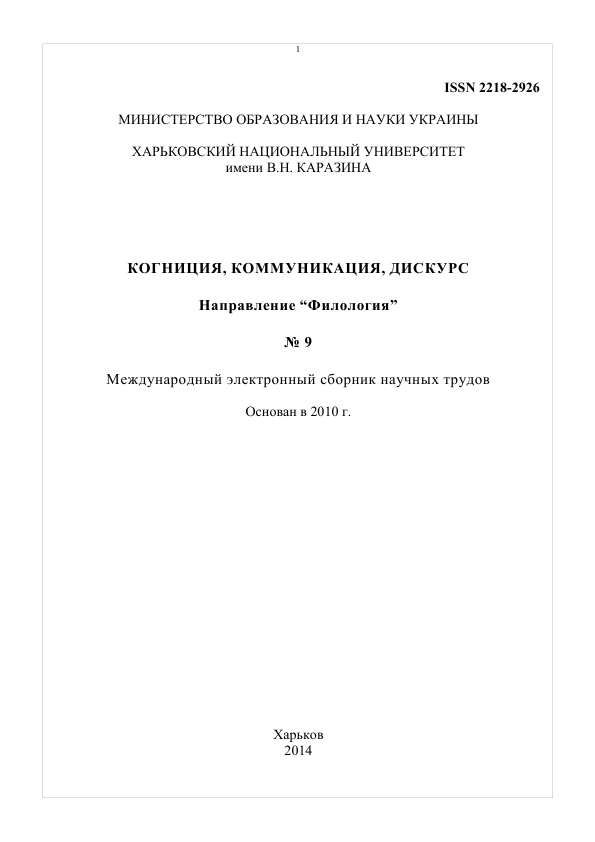Rhetorical strategies of Russian discourse in Kazakhstan
Abstract
Thepaper presents an analysis of the rhetoricalstrategies of modern Kazakh discourse. The language in the post-Soviet discourse, as this paper proves, is no longer a phenomenon of culture and serves only as a means of fixating and transmitting information. On the material of publicistic, domestic and fiction discourses, the article revealed verbal strategies of post-Soviet discourse. These include logic-chopping, language of beauracracy and simulative anthropocentric interpretation.
Downloads
References
Ahatova, B.A. (2006). Politicheskij diskurs i jazykovoe soznanie [Political discourse and linguistic consciousness]. Almaty: Jekonomika Publ.
Bourdieu, P. (1979). Le Sens pratique. Paris: Minuit.
Esenaman, Z. (2010). Hardkor [Hardcore]. Almaty Publ.
Gizdatov, G.G. (1998). Kognitivnye modeli v rechevoj dejatel'nosti [Cognitive models in speech activity]. Almaty: Gylym Publ.
Hasanov, B. (2005). Jazyki narodov Kazahstana [Languages of the peoples of Kazakhstan]. Almaty Publ.
Hjelle, L., and Ziegler, D. (1992). Personality Theories: Basic Assumptions, Research, and Applications. 3th ed. New York: McGrow-Hill Publ.
Krongauz, M. (2008). Russkij jazyk na grani nervnogo sryva [The Russian language on the verge of a nervous breakdown]. Moscow: Jazyki slavjanskoj kul'tury, Publ.
Leont'ev, A.N. (1994). Filosofija psihologii: iz nauchnogo nasledija [Philosophy of psychology: from scientific heritage]. Moscow: MGU Publ.
Moscovici, S. (1985). The age of the crowd: a historical treatise on mass psychology. Cambridge: Cambridge University Press
Russkij associativnyj slovar'. Kniga 1. Prjamoj slovar': ot stimula k reakcii (1994) [Russian associative dictionary. Book 1. Direct dictionary: from stimulus to response]. Moscow: «Pomovskij i partnery» Publ.
Authors, who publish with this journal, accept the following conditions:
The authors reserve the copyright of their work and transfer to the journal the right of the first publication of this work under the terms of the Creative Commons Attribution License (CC BY), which allows other persons to freely distribute a published work with mandatory reference to the authors of the original work and the first publication of the work in this journal.
Authors have the right to enter into separate additional agreements for the non-exclusive dissemination of the work in the form in which it was published by this journal (for example, to post the work in the electronic institutions' repository or to publish as part of a monograph), provided that the link to the first publication of the work in this journal is given.
The journal policy allows and encourages the authors to place the manuscripts on the Internet (for example, in the institutions' repositories or on personal websites), both before the presentation of this manuscript to the editorial board and during review procedure, as it contributes to the creation of productive scientific discussion and positively affects the efficiency and dynamics of citing the published work (see The Effect of Open Access).




